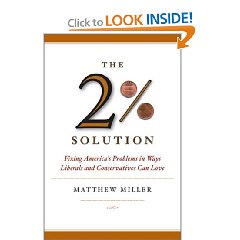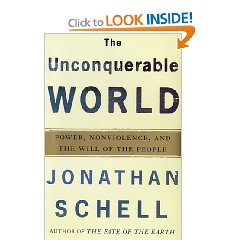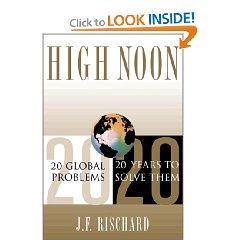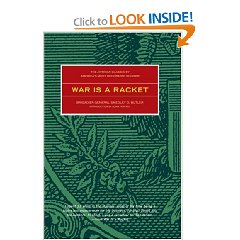Edit of21 Dec 07 to add links and reassert importance of this work.
Of the 1000+ books I have reviewed on Amazon, this is one of a handful that can be considered truly revolutionary. Three others that come instantly to mind are those by Jonathan Schell, The Unconquerable World: Power, Nonviolence, and the Will of the People, William Greider, The Soul of Capitalism: Opening Paths to a Moral Economy, and E.O. Wilson, The Future of Life.
This book is not an easy read. The author, a Professor of Law in the University of Cambridge, wrote an earlier work, Eunomia: New Order for a New World, that has remained similar obscure, and that is a pity, for what I see here is a truly brilliant mind able to suggest that the Congress of Vienna, the current law of nations, and the de-humanization of state to state relations, isolating the internal affairs and inhumanities of state from global public morality and indignation, are the greatest travesty in human history.
The author joins William Greider in suggesting that the state as a corporate personality is as immoral (and irrational in terms of natural law) as is the corporate personality that allows corporations to treat humans as “goods.” In this book the author sets out to do nothing less than logically overturn centuries of absolutist amoral power institutionalized by elites in the form of state governments with sovereign rights divorced from and with eminent domain over their subjects (vice citizens), and to propose a new form of globalized human society that restores the human aspect to relations among peoples and among nations of peoples.
This is a book that requires patience. It must be slowly and methodically absorbed. The footnotes are quite extraordinary, as is the summative and explicatory survey of many different literatures over many different historical periods.
The author is critical of universities for failing to develop the public mind, and offers a lovely exposition of how sanity, insanity, and public consciousness are all subject to the mythology of capitalism and the manipulation of the elites–in this he would find fellow travelers (smile) in Chomsky and Vidal. He concludes that diplomacy (and statecraft) as an articulation of the public mind and public interest have *failed*, and looks instead to some sort of social re-ordering from the bottom up.
This book, apart from offering an enlightened vision of the law as a living thing able to encapsulate changes morality and changing interests among parties, does nothing less than reconceptualize international relations. This author is to the law of nations what Vaclav Havel was to communism.
He touches on a point Henry Kissinger makes in the last of his books I reviewed (Does America Need a Foreign Policy? : Toward a Diplomacy for the 21st Century), and specifically that “The risk now facing humanity is the globalizing of the all-powerful, all-consuming social systems, without the moral, legal, political and cultural aspirations and constraints, such as they are, which moderate social action at the national level.” The world, in essence, has become much too complex and much too volatile and much too dangerous for archaic state-level forms of mandarin governance.
In the middle of the book, the author's review of how Germany previously collapsed into a patchwork of insignificant nations sounds all too much like the United States of America, where citizenship is losing its value, tyrannical minorities are in isolation from one another (and from reality), and the sense of national identity is too easily captured by a handful of neo-conservatives (modern Nazis). Interestingly, as with Havel, he notes the importance of art and culture as a means of synthesizing national identity, and would probably agree with E.O. Wilson (“Consilience”) as to the humanities being vital to the context and conduct of the sciences. His list of national “diseases” is both disturbing and timely.
He joins Jefferson and the founding fathers in focusing on the health and happiness of the people as the ultimate organizing principle (some would translate “happiness” as “fulfillment”, a more accomplished and less frivolous objective).
On page 137 he is quite clear in suggesting that capitalism as it is practiced today, is nothing less than a form of totalitarianism, and he goes on to say on page 139 that social evil is the greatest challenge facing humanity today. Instead of socializing individuals into the reduced status of “goods” we should be socializing the state into a representative and general democracy by rehumanizing humanity and rehumanizing the organizations that are supposed to provide collective voice to the people.
In following pages the author provides a brilliant catalog of the ills of democracy, reconceptualizes democracy as being based on the rule of law (for all) rather than on who rules (for the benefit of the few), and he explicitly condemns the largely unaccountable forms of concentrated power (by which we take to mean the World Trade Organization, the International Monetary Fund, and other devices for perpetuating immoral capitalism irrespective of local needs).
The full force of the author's thinking comes into full stride in the concluding portions of the book as he integrates new concepts of international law, history, social relations, and new forms of intergovernmental relations truly representative of the species as a whole and the people as a moral force. He laments the manner in which an extraordinarily global elite has been able to “separate” people from morality and from one another, leading to a common acceptance of five intolerable things: 1) unequal social development; 2) war and armaments; 3) governmental oppression; 4) physical degradation; and 5) spiritual degradation.
The author concludes by proposing a new view of the human world, and his remarks must be read in the original. He ends, as do Will and Ariel Durant in their summative “The Lessons of History,” by noting that the necessary revolution is that which must take place in our minds, not on the streets.”
This is an utterly brilliant book that has been badly marketed and is grossly under-appreciated, even by the so-called intelligencia. I recommend it to anyone who wishes to cast off their slave clothes, stop being a drone, and live free.
More recent books that fully validate this superb work, with reviews:
Failed States: The Abuse of Power and the Assault on Democracy
The Battle for the Soul of Capitalism: How the Financial System Underminded Social Ideals, Damaged Trust in the Markets, Robbed Investors of Trillions – and What to Do About It
Running on Empty: How the Democratic and Republican Parties Are Bankrupting Our Future and What Americans Can Do About It
Global Assemblages: Technology, Politics, and Ethics as Anthropological Problems
A Power Governments Cannot Suppress










